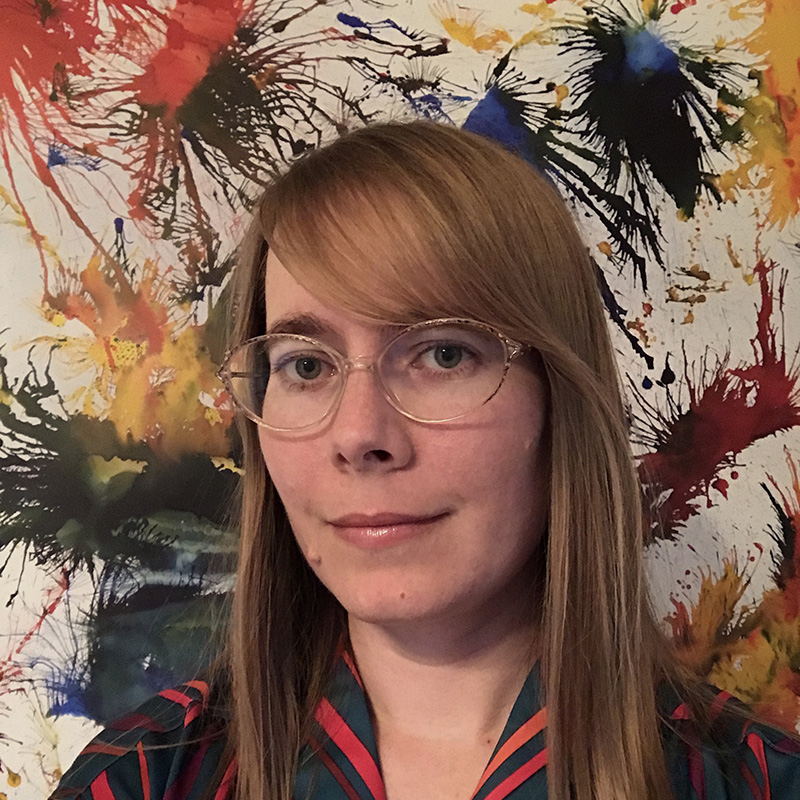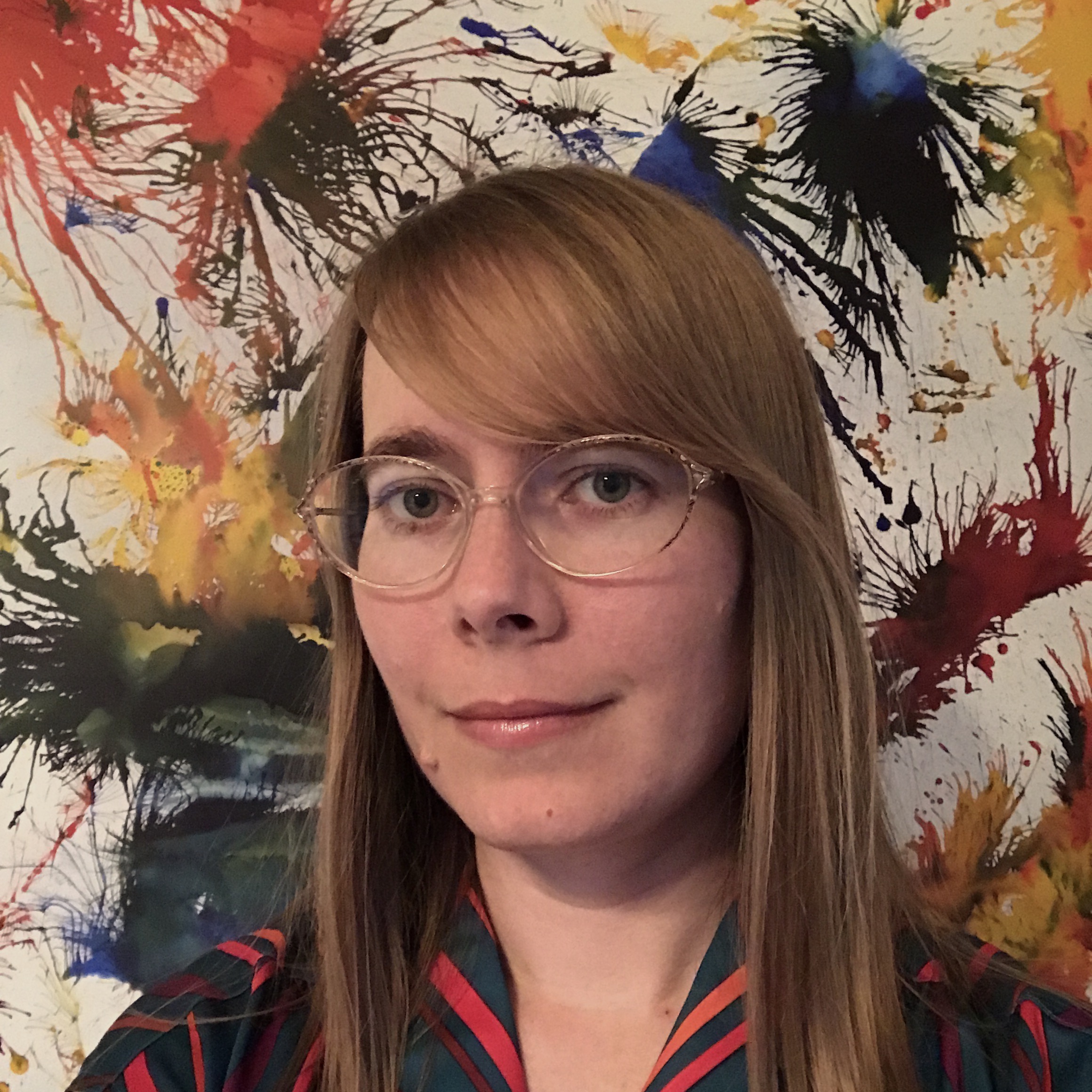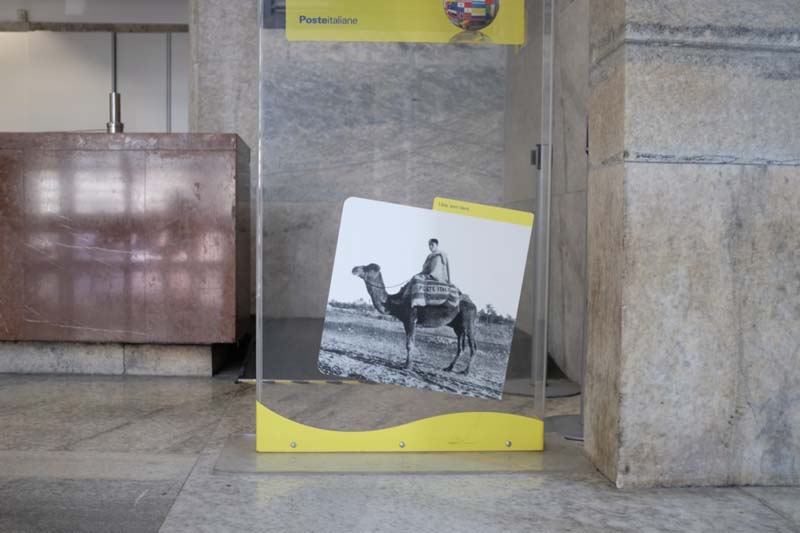-
Membership
Membership
Anyone with an interest in the history of the built environment is welcome to join the Society of Architectural Historians -
Conferences
Conferences
SAH Annual International Conferences bring members together for scholarly exchange and networking -
Publications
Publications
Through print and digital publications, SAH documents the history of the built environment and disseminates scholarship -
Programs
Programs
SAH promotes meaningful engagement with the history of the built environment through its programs -
Jobs & Opportunities
Jobs & Opportunities
SAH provides resources, fellowships, and grants to help further your career and professional life -
Support
Support
We invite you to support the educational mission of SAH by making a gift, becoming a member, or volunteering -
About
About
SAH promotes the study, interpretation, and conservation of the built environment worldwide for the benefit of all
Call for Papers: Spatial Practices of Transnational Care
SAH Australia and New Zealand (SAHANZ)
pfokaidis@uth.gr
pfokaidis@uth.gr
Add to:
Fabrications: The Journal of the Society of Architectural Historians, Australia & New Zealand invites papers for a special issue (Vol. 36 No. 2) on the theme of "Spatial Practices of Transnational Care", edited by Petros Phokaides and Olga Touloumi. The deadline is November 1st and the publication is scheduled for June 2026.
This special issue aims to instigate a critical conversation on the history of transnational networks of care and their associated spatial practices. Although interdisciplinary conversations on care have proliferated in recent years, we are yet to explore their transnational dimensions in the history of the built environment. How have care practices travelled across national boundaries and what kind of spatial politics and practices have they enabled? How have transnational kinship bonds transformed the built environment and what kind of spaces have they created? Acknowledging that care can also serve as a mechanism of governance and control (especially when practiced on the level of the state), this special issue wishes to explore those transnational care systems that rise from the ground-up to reimagine the politics and spaces of social reproduction and to critique the economies and knowledge systems that sustain them.
We aim to investigate both epistemic and embodied forms of care — ranging from state-sanctioned initiatives to informal and insurgent strategies — that imagine, create and sustain spaces for vulnerable communities. We wish to write into history the grassroot efforts across professional domains and social strata (including designers, architects, and planners but also diplomats, doctors, nurses, teachers, and more) that participated in the making of hospitals, schools, orphanages, and other sites. Besides interrogating gender roles typically ascribed to care practices, we welcome papers that critically address the deployment of ?care systems? beyond national borders promoted as vital components of mutual aid practices and gift economies, or even as levers of diplomacy. We invite research that examines the invisible (and sometimes visible) work, as well as the multiple ways in which individuals, collectives, and communities have understood and articulated care as an instrument, lens, framework or polemic to reimagine life itself. More importantly, we wish to understand the modalities and spatial practices that forge networks of solidarity and transcend national domestic and public spaces, mobilizing transnational imaginaries of emancipation and empowerment. Innovative historical research that moves beyond the anthropocentric context to also address human-to-nonhuman care systems, transspecies kinship, and planetary care is particularly welcomed. We are especially interested in intersectional feminist histories of worldmaking and solidarity built across geographies.
This special issue invites papers that investigate spatial practices of fostering and sustaining transnational kinship in "soft", every day, or insurgent forms that directly challenge capitalist, colonial, heteronormative, ableist, patriarchal, and racialized systems. We particularly encourage submissions that focus on spaces — from camps all the way to retail shops — that act as key sites of socio-economic mobility and resistance, fostering transnational solidarity and care practices for human and more than human worlds.
Questions about the special issue can be directed to the guest editors: Petros Phokaides (pfokaidis@uth.gr) and Olga Touloumi (otouloum@bard.edu).
For submission instructions and portal, go to: https://www.tandfonline.com/journals/rfab20
Row White
Lorem ipsum dolor sit amet, consectetur adipiscing elit, sed do eiusmod tempor incididunt ut labore et dolore magna aliqua. Ut enim ad minim veniam, quis nostrud exercitation ullamco laboris nisi ut aliquip ex ea commodo consequat. Duis aute irure dolor in reprehenderit in voluptate velit esse cillum dolore eu fugiat nulla pariatur. Excepteur sint occaecat cupidatat non proident, sunt in culpa qui officia deserunt mollit anim id est laborum.
Row BG Green
Lorem ipsum dolor sit amet, consectetur adipiscing elit, sed do eiusmod tempor incididunt ut labore et dolore magna aliqua. Ut enim ad minim veniam, quis nostrud exercitation ullamco laboris nisi ut aliquip ex ea commodo consequat. Duis aute irure dolor in reprehenderit in voluptate velit esse cillum dolore eu fugiat nulla pariatur. Excepteur sint occaecat cupidatat non proident, sunt in culpa qui officia deserunt mollit anim id est laborum.
Row Gray
Lorem ipsum dolor sit amet, consectetur adipiscing elit, sed do eiusmod tempor incididunt ut labore et dolore magna aliqua. Ut enim ad minim veniam, quis nostrud exercitation ullamco laboris nisi ut aliquip ex ea commodo consequat. Duis aute irure dolor in reprehenderit in voluptate velit esse cillum dolore eu fugiat nulla pariatur. Excepteur sint occaecat cupidatat non proident, sunt in culpa qui officia deserunt mollit anim id est laborum.
Row Green
Lorem ipsum dolor sit amet, consectetur adipiscing elit, sed do eiusmod tempor incididunt ut labore et dolore magna aliqua. Ut enim ad minim veniam, quis nostrud exercitation ullamco laboris nisi ut aliquip ex ea commodo consequat. Duis aute irure dolor in reprehenderit in voluptate velit esse cillum dolore eu fugiat nulla pariatur. Excepteur sint occaecat cupidatat non proident, sunt in culpa qui officia deserunt mollit anim id est laborum.
Row CP Dark
Lorem ipsum dolor sit amet, consectetur adipiscing elit, sed do eiusmod tempor incididunt ut labore et dolore magna aliqua. Ut enim ad minim veniam, quis nostrud exercitation ullamco laboris nisi ut aliquip ex ea commodo consequat. Duis aute irure dolor in reprehenderit in voluptate velit esse cillum dolore eu fugiat nulla pariatur. Excepteur sint occaecat cupidatat non proident, sunt in culpa qui officia deserunt mollit anim id est laborum.
Heading 1
Lorem ipsum dolor sit amet, consectetur adipiscing elit, sed do eiusmod tempor incididunt ut labore et dolore magna aliqua. Ut enim ad minim veniam, quis nostrud exercitation ullamco laboris nisi ut aliquip ex ea commodo consequat. Duis aute irure dolor in reprehenderit in voluptate velit esse cillum dolore eu fugiat nulla pariatur. Excepteur sint occaecat cupidatat non proident, sunt in culpa qui officia deserunt mollit anim id est laborum.
Heading 2
Lorem ipsum dolor sit amet, consectetur adipiscing elit, sed do eiusmod tempor incididunt ut labore et dolore magna aliqua. Ut enim ad minim veniam, quis nostrud exercitation ullamco laboris nisi ut aliquip ex ea commodo consequat. Duis aute irure dolor in reprehenderit in voluptate velit esse cillum dolore eu fugiat nulla pariatur. Excepteur sint occaecat cupidatat non proident, sunt in culpa qui officia deserunt mollit anim id est laborum.
Heading 3
Lorem ipsum dolor sit amet, consectetur adipiscing elit, sed do eiusmod tempor incididunt ut labore et dolore magna aliqua. Ut enim ad minim veniam, quis nostrud exercitation ullamco laboris nisi ut aliquip ex ea commodo consequat. Duis aute irure dolor in reprehenderit in voluptate velit esse cillum dolore eu fugiat nulla pariatur. Excepteur sint occaecat cupidatat non proident, sunt in culpa qui officia deserunt mollit anim id est laborum.
Heading 4
Lorem ipsum dolor sit amet, consectetur adipiscing elit, sed do eiusmod tempor incididunt ut labore et dolore magna aliqua. Ut enim ad minim veniam, quis nostrud exercitation ullamco laboris nisi ut aliquip ex ea commodo consequat. Duis aute irure dolor in reprehenderit in voluptate velit esse cillum dolore eu fugiat nulla pariatur. Excepteur sint occaecat cupidatat non proident, sunt in culpa qui officia deserunt mollit anim id est laborum.
Heading 5
Lorem ipsum dolor sit amet, consectetur adipiscing elit, sed do eiusmod tempor incididunt ut labore et dolore magna aliqua. Ut enim ad minim veniam, quis nostrud exercitation ullamco laboris nisi ut aliquip ex ea commodo consequat. Duis aute irure dolor in reprehenderit in voluptate velit esse cillum dolore eu fugiat nulla pariatur. Excepteur sint occaecat cupidatat non proident, sunt in culpa qui officia deserunt mollit anim id est laborum.
Heading 6
Lorem ipsum dolor sit amet, consectetur adipiscing elit, sed do eiusmod tempor incididunt ut labore et dolore magna aliqua. Ut enim ad minim veniam, quis nostrud exercitation ullamco laboris nisi ut aliquip ex ea commodo consequat. Duis aute irure dolor in reprehenderit in voluptate velit esse cillum dolore eu fugiat nulla pariatur. Excepteur sint occaecat cupidatat non proident, sunt in culpa qui officia deserunt mollit anim id est laborum.
lead
Blockquote: Lorem ipsum dolor sit amet, consectetur adipiscing elit, sed do eiusmod tempor incididunt ut labore et dolore magna aliqua. Ut enim ad minim veniam, quis nostrud exercitation ullamco laboris nisi ut aliquip ex ea commodo consequat. Duis aute irure dolor in reprehenderit in voluptate velit esse cillum dolore eu fugiat nulla pariatur. Excepteur sint occaecat cupidatat non proident, sunt in culpa qui officia deserunt mollit anim id est laborum.
- List Item
- List Item
- List Item
- List Item
- List Item
- List Item
Two Buttons in one paragraph
Expandable List
At the center of SAH Celebrates is the Charnley-Persky House (1891–1892), a National Historic Landmark and a Chicago Landmark designed by Louis Sullivan with assistance from Frank Lloyd Wright, that serves as SAH headquarters. SAH Celebrates highlights the importance of fostering a supportive community whose efforts ensure the stewardship of architectural gems like the Charnley-Persky House.
Proceeds benefit the ongoing maintenance and care of the Charnley-Persky House and SAH's educational programs and publications, including SAH Archipedia and Buildings of the United States.
T. Gunny Harboe, FAIA
Founder, Harboe Architects
Michelangelo Sabatino, PhD
Professor, Director of Ph.D. Program in Architecture, Inaugural John Vinci Distinguished Research Fellow, Illinois Institute of Technology
Founder, Harboe Architects
Michelangelo Sabatino, PhD
Professor, Director of Ph.D. Program in Architecture, Inaugural John Vinci Distinguished Research Fellow, Illinois Institute of Technology
Laurence O. Booth, FAIA
Booth Hansen Architects
Rebekah Coffman
Chicago History Museum
Stuart Cohen, FAIA
Cohen-Hacker Architects
Thomas M. Dietz
Alison Fisher
Art Institute of Chicago
Scott Fortman
Institute of Classical Architecture and Art, Chicago-Midwest Chapter
Keith Goad
The Keith Goad Group, Berkshire Hathaway Home Services Chicago
Chandra Goldsmith
IIT CoA Board of Advisors
Barbara Gordon
Frank Lloyd Wright Building Conservancy
Eleanor Gorski
Chicago Architecture Center
Stuart Graff
Frank Lloyd Wright Foundation
Julie Hacker, FAIA
Cohen-Hacker Architects
Sarah Herda
Graham Foundation
Harry Hunderman, FAIA
Wiss, Janney, Elstner Associates, Inc
Lisa Key
Driehaus Museum
Nancy and Thomas Klein
SAH Chicago Chapter
Thomas Leslie
University of Illinois at Urbana-Champaign
Jen Masengarb
AIA Chicago
Bonnie McDonald
Landmarks Illinois
Justin Miller
Docomomo US/Chicago
Ward Miller
Preservation Chicago
Heather Hyde Minor
University of Notre Dame
Keith N. Morgan, FSAH
SAH Past President
Sarah Rogers Morris
University of Illinois at Chicago
John K. Notz Jr.
SAH Benefactor Member
Keith Olsen
Olsen Vranas Architects
Abby Persky
Chicago, IL
Laurie Petersen
Charnley-Persky House Board Member
Charlie Pipal
School of the Art Institute of Chicago
Deborah Slaton
Wiss, Janney, Elstner Assocites, Inc.
Cynthia Vranas
Mies Van der Rohe Society
Cynthia Weese, FAIA
Weese, Langley, Weese Architects and Charnley-Persky House Board Member
Ernie Wong
Commission on Chicago Landmarks
Booth Hansen Architects
Rebekah Coffman
Chicago History Museum
Stuart Cohen, FAIA
Cohen-Hacker Architects
Thomas M. Dietz
Jaeger Nickola Kuhlman & Associates
Art Institute of Chicago
Scott Fortman
Institute of Classical Architecture and Art, Chicago-Midwest Chapter
Keith Goad
The Keith Goad Group, Berkshire Hathaway Home Services Chicago
Chandra Goldsmith
IIT CoA Board of Advisors
Barbara Gordon
Frank Lloyd Wright Building Conservancy
Eleanor Gorski
Chicago Architecture Center
Stuart Graff
Frank Lloyd Wright Foundation
Julie Hacker, FAIA
Cohen-Hacker Architects
Sarah Herda
Graham Foundation
Harry Hunderman, FAIA
Wiss, Janney, Elstner Associates, Inc
Lisa Key
Driehaus Museum
Nancy and Thomas Klein
SAH Chicago Chapter
Thomas Leslie
University of Illinois at Urbana-Champaign
Jen Masengarb
AIA Chicago
Bonnie McDonald
Landmarks Illinois
Justin Miller
Docomomo US/Chicago
Ward Miller
Preservation Chicago
Heather Hyde Minor
University of Notre Dame
Keith N. Morgan, FSAH
SAH Past President
Sarah Rogers Morris
University of Illinois at Chicago
John K. Notz Jr.
SAH Benefactor Member
Keith Olsen
Olsen Vranas Architects
Abby Persky
Chicago, IL
Laurie Petersen
Charnley-Persky House Board Member
Charlie Pipal
School of the Art Institute of Chicago
Deborah Slaton
Wiss, Janney, Elstner Assocites, Inc.
Chris-Annmarie Spencer, AIA, NOMA
AIA Chicago Foundation
Cynthia Vranas
Mies Van der Rohe Society
Cynthia Weese, FAIA
Weese, Langley, Weese Architects and Charnley-Persky House Board Member
Ernie Wong
Commission on Chicago Landmarks
Download the prospectus for information about sponsorship and advertising opportunities. Please contact Ben Thomas at 312-573-1365 if you have questions.
Category Dropdown
OOTB Cards
Card
Card.Alt
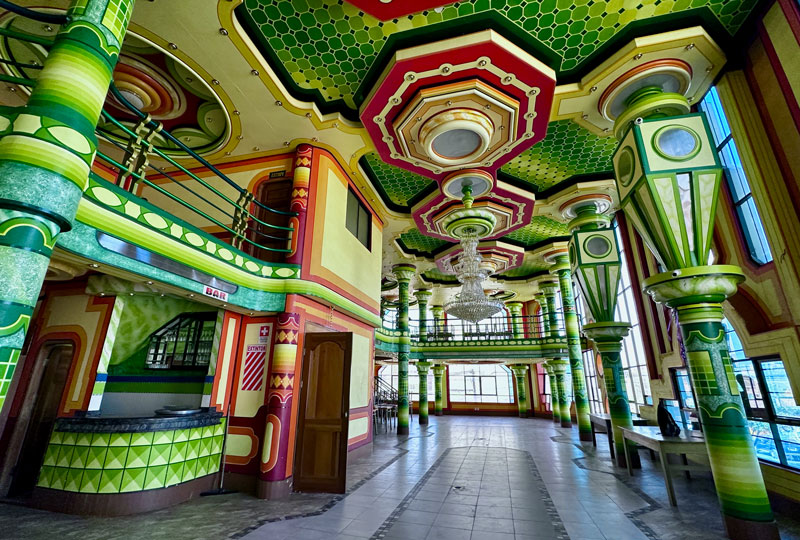
Card Title
Card Text - Lorem ipsum dolor sit amet, consectetur adipiscing elit, sed do eiusmod tempor incididunt ut labore et dolore magna aliqua.

Card Title
Card Text - Lorem ipsum dolor sit amet, consectetur adipiscing elit, sed do eiusmod tempor incididunt ut labore et dolore magna aliqua.

Card Title
Card Text - Lorem ipsum dolor sit amet, consectetur adipiscing elit, sed do eiusmod tempor incididunt ut labore et dolore magna aliqua.
Card.Simple

Card Title
Card Text - Lorem ipsum dolor sit amet, consectetur adipiscing elit, sed do eiusmod tempor incididunt ut labore et dolore magna aliqua.
Card.Hero
Card Title
Card Text - Lorem ipsum dolor sit amet, consectetur adipiscing elit, sed do eiusmod tempor incididunt ut labore et dolore magna aliqua.

Card Title
Card Text - Lorem ipsum dolor sit amet, consectetur adipiscing elit, sed do eiusmod tempor incididunt ut labore et dolore magna aliqua.
Card Title
Card Text - Lorem ipsum dolor sit amet, consectetur adipiscing elit, sed do eiusmod tempor incididunt ut labore et dolore magna aliqua.

Card Title
Card Text - Lorem ipsum dolor sit amet, consectetur adipiscing elit, sed do eiusmod tempor incididunt ut labore et dolore magna aliqua.
Card ButtonCustom Cards
List.Custom Card
List.Custom Card 2 Column
List.Custom Card 3 Column
List.Custom Card 4 Column
Detail.Card
Detail.Card Alt
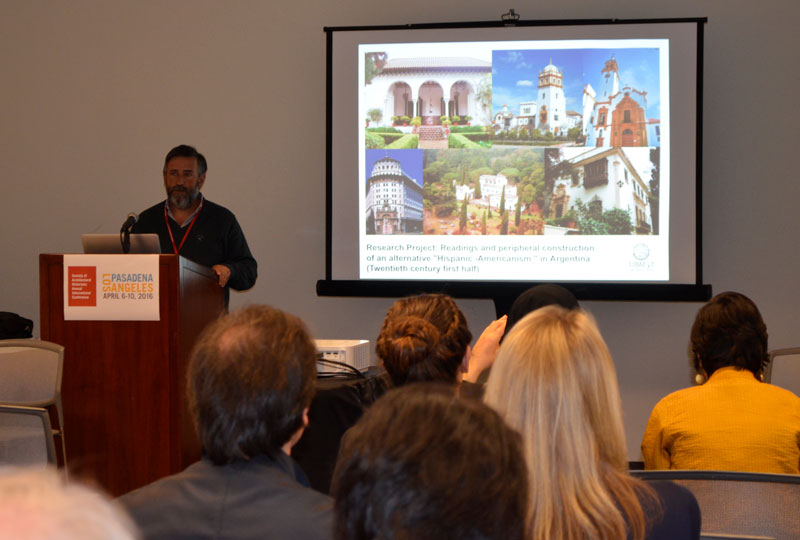
Annual Conference Fellowships
Conference fellowships support session chairs and speakers participating in the SAH Annual International Conference.
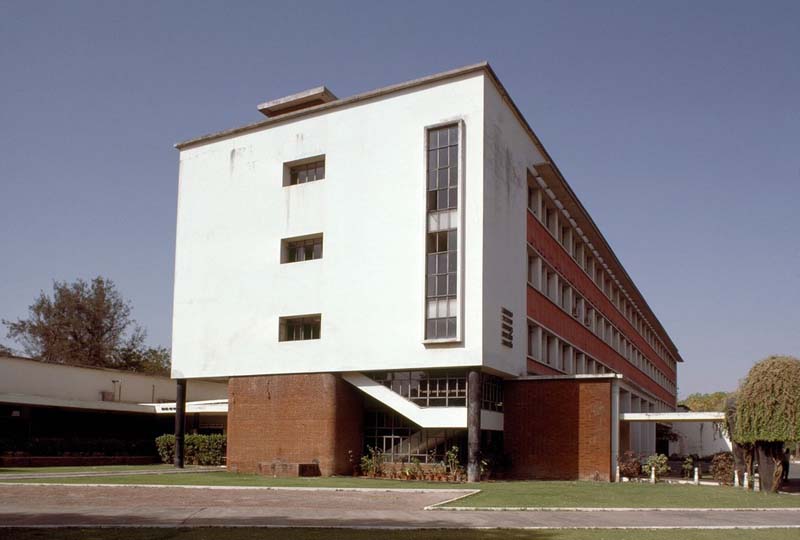

Detail.Card Simple
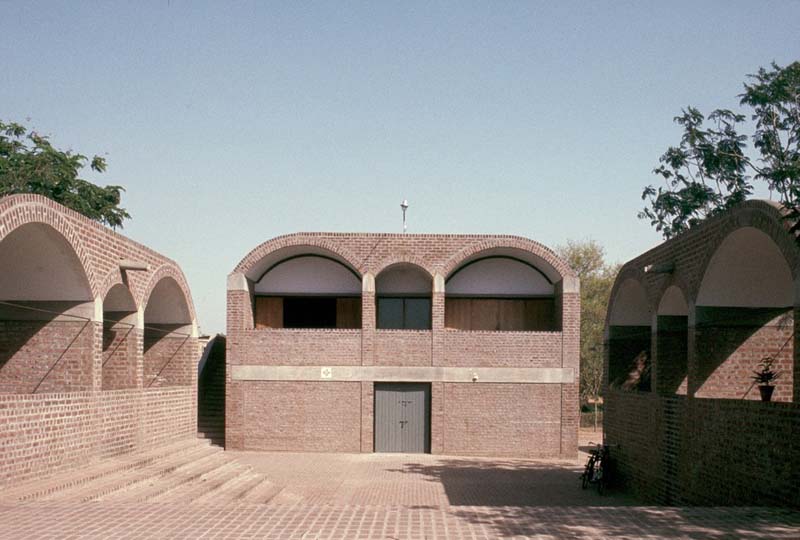
Another Card Title With Extra Text
This is a card summary. Has a limit of 255 characters. We can increase that if you think we need more text.
Detail.Card Hero


Content Types
Blogs
Blog List
Events
Events List
Call for Papers: Spatial Practices of Transnational Care
SAH Australia and New Zealand (SAHANZ)
pfokaidis@uth.gr
pfokaidis@uth.gr
Add to:
Fabrications: The Journal of the Society of Architectural Historians, Australia & New Zealand invites papers for a special issue (Vol. 36 No. 2) on the theme of "Spatial Practices of Transnational Care", edited by Petros Phokaides and Olga Touloumi. The deadline is November 1st and the publication is scheduled for June 2026.
This special issue aims to instigate a critical conversation on the history of transnational networks of care and their associated spatial practices. Although interdisciplinary conversations on care have proliferated in recent years, we are yet to explore their transnational dimensions in the history of the built environment. How have care practices travelled across national boundaries and what kind of spatial politics and practices have they enabled? How have transnational kinship bonds transformed the built environment and what kind of spaces have they created? Acknowledging that care can also serve as a mechanism of governance and control (especially when practiced on the level of the state), this special issue wishes to explore those transnational care systems that rise from the ground-up to reimagine the politics and spaces of social reproduction and to critique the economies and knowledge systems that sustain them.
We aim to investigate both epistemic and embodied forms of care — ranging from state-sanctioned initiatives to informal and insurgent strategies — that imagine, create and sustain spaces for vulnerable communities. We wish to write into history the grassroot efforts across professional domains and social strata (including designers, architects, and planners but also diplomats, doctors, nurses, teachers, and more) that participated in the making of hospitals, schools, orphanages, and other sites. Besides interrogating gender roles typically ascribed to care practices, we welcome papers that critically address the deployment of ?care systems? beyond national borders promoted as vital components of mutual aid practices and gift economies, or even as levers of diplomacy. We invite research that examines the invisible (and sometimes visible) work, as well as the multiple ways in which individuals, collectives, and communities have understood and articulated care as an instrument, lens, framework or polemic to reimagine life itself. More importantly, we wish to understand the modalities and spatial practices that forge networks of solidarity and transcend national domestic and public spaces, mobilizing transnational imaginaries of emancipation and empowerment. Innovative historical research that moves beyond the anthropocentric context to also address human-to-nonhuman care systems, transspecies kinship, and planetary care is particularly welcomed. We are especially interested in intersectional feminist histories of worldmaking and solidarity built across geographies.
This special issue invites papers that investigate spatial practices of fostering and sustaining transnational kinship in "soft", every day, or insurgent forms that directly challenge capitalist, colonial, heteronormative, ableist, patriarchal, and racialized systems. We particularly encourage submissions that focus on spaces — from camps all the way to retail shops — that act as key sites of socio-economic mobility and resistance, fostering transnational solidarity and care practices for human and more than human worlds.
Questions about the special issue can be directed to the guest editors: Petros Phokaides (pfokaidis@uth.gr) and Olga Touloumi (otouloum@bard.edu).
For submission instructions and portal, go to: https://www.tandfonline.com/journals/rfab20
Events Home Blocks
Call for Papers: Spatial Practices of Transnational Care
SAH Australia and New Zealand (SAHANZ)
pfokaidis@uth.gr
pfokaidis@uth.gr
Add to:
Fabrications: The Journal of the Society of Architectural Historians, Australia & New Zealand invites papers for a special issue (Vol. 36 No. 2) on the theme of "Spatial Practices of Transnational Care", edited by Petros Phokaides and Olga Touloumi. The deadline is November 1st and the publication is scheduled for June 2026.
This special issue aims to instigate a critical conversation on the history of transnational networks of care and their associated spatial practices. Although interdisciplinary conversations on care have proliferated in recent years, we are yet to explore their transnational dimensions in the history of the built environment. How have care practices travelled across national boundaries and what kind of spatial politics and practices have they enabled? How have transnational kinship bonds transformed the built environment and what kind of spaces have they created? Acknowledging that care can also serve as a mechanism of governance and control (especially when practiced on the level of the state), this special issue wishes to explore those transnational care systems that rise from the ground-up to reimagine the politics and spaces of social reproduction and to critique the economies and knowledge systems that sustain them.
We aim to investigate both epistemic and embodied forms of care — ranging from state-sanctioned initiatives to informal and insurgent strategies — that imagine, create and sustain spaces for vulnerable communities. We wish to write into history the grassroot efforts across professional domains and social strata (including designers, architects, and planners but also diplomats, doctors, nurses, teachers, and more) that participated in the making of hospitals, schools, orphanages, and other sites. Besides interrogating gender roles typically ascribed to care practices, we welcome papers that critically address the deployment of ?care systems? beyond national borders promoted as vital components of mutual aid practices and gift economies, or even as levers of diplomacy. We invite research that examines the invisible (and sometimes visible) work, as well as the multiple ways in which individuals, collectives, and communities have understood and articulated care as an instrument, lens, framework or polemic to reimagine life itself. More importantly, we wish to understand the modalities and spatial practices that forge networks of solidarity and transcend national domestic and public spaces, mobilizing transnational imaginaries of emancipation and empowerment. Innovative historical research that moves beyond the anthropocentric context to also address human-to-nonhuman care systems, transspecies kinship, and planetary care is particularly welcomed. We are especially interested in intersectional feminist histories of worldmaking and solidarity built across geographies.
This special issue invites papers that investigate spatial practices of fostering and sustaining transnational kinship in "soft", every day, or insurgent forms that directly challenge capitalist, colonial, heteronormative, ableist, patriarchal, and racialized systems. We particularly encourage submissions that focus on spaces — from camps all the way to retail shops — that act as key sites of socio-economic mobility and resistance, fostering transnational solidarity and care practices for human and more than human worlds.
Questions about the special issue can be directed to the guest editors: Petros Phokaides (pfokaidis@uth.gr) and Olga Touloumi (otouloum@bard.edu).
For submission instructions and portal, go to: https://www.tandfonline.com/journals/rfab20
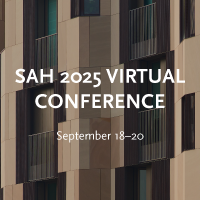
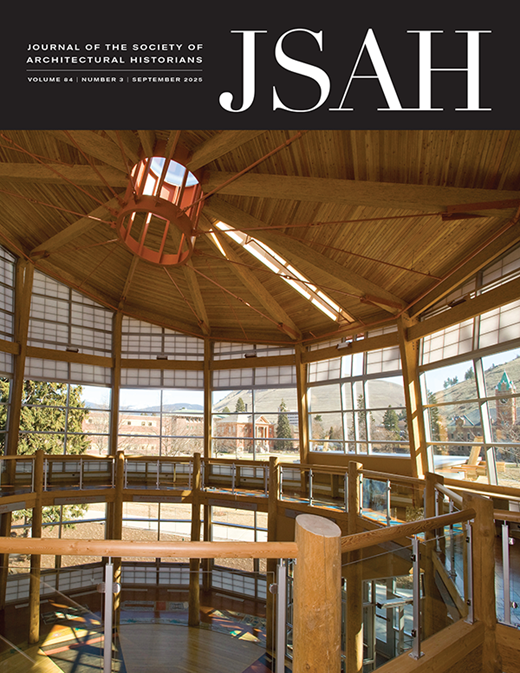

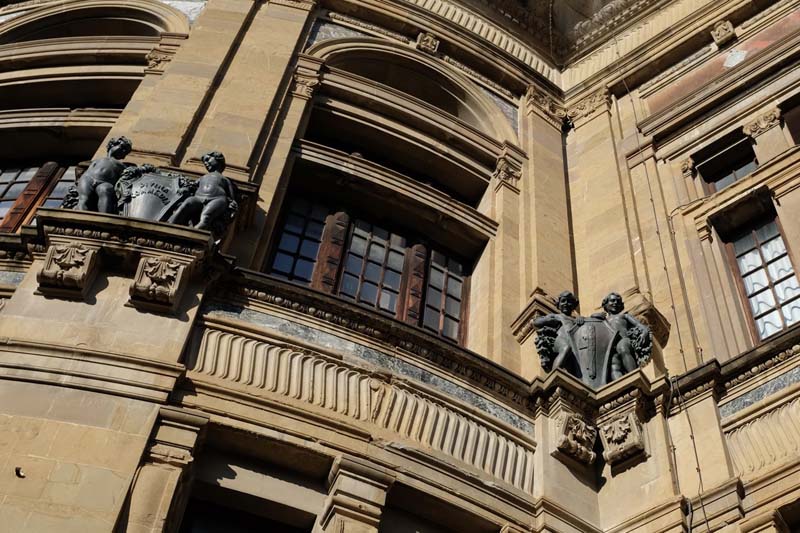

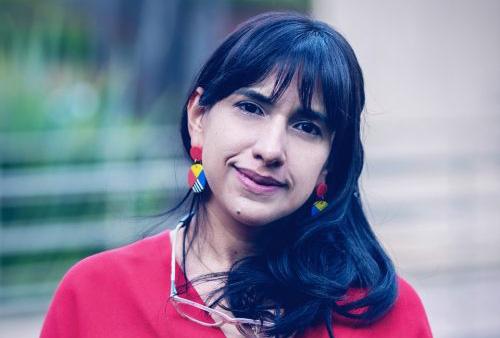
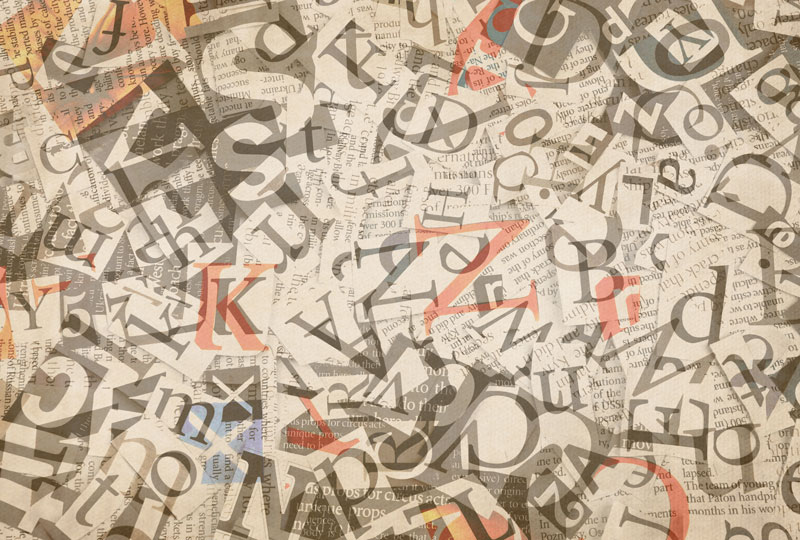
_resizedc8365771-cae3-4da7-8045-fc357eea571c.jpg?sfvrsn=a1d9349b_1)

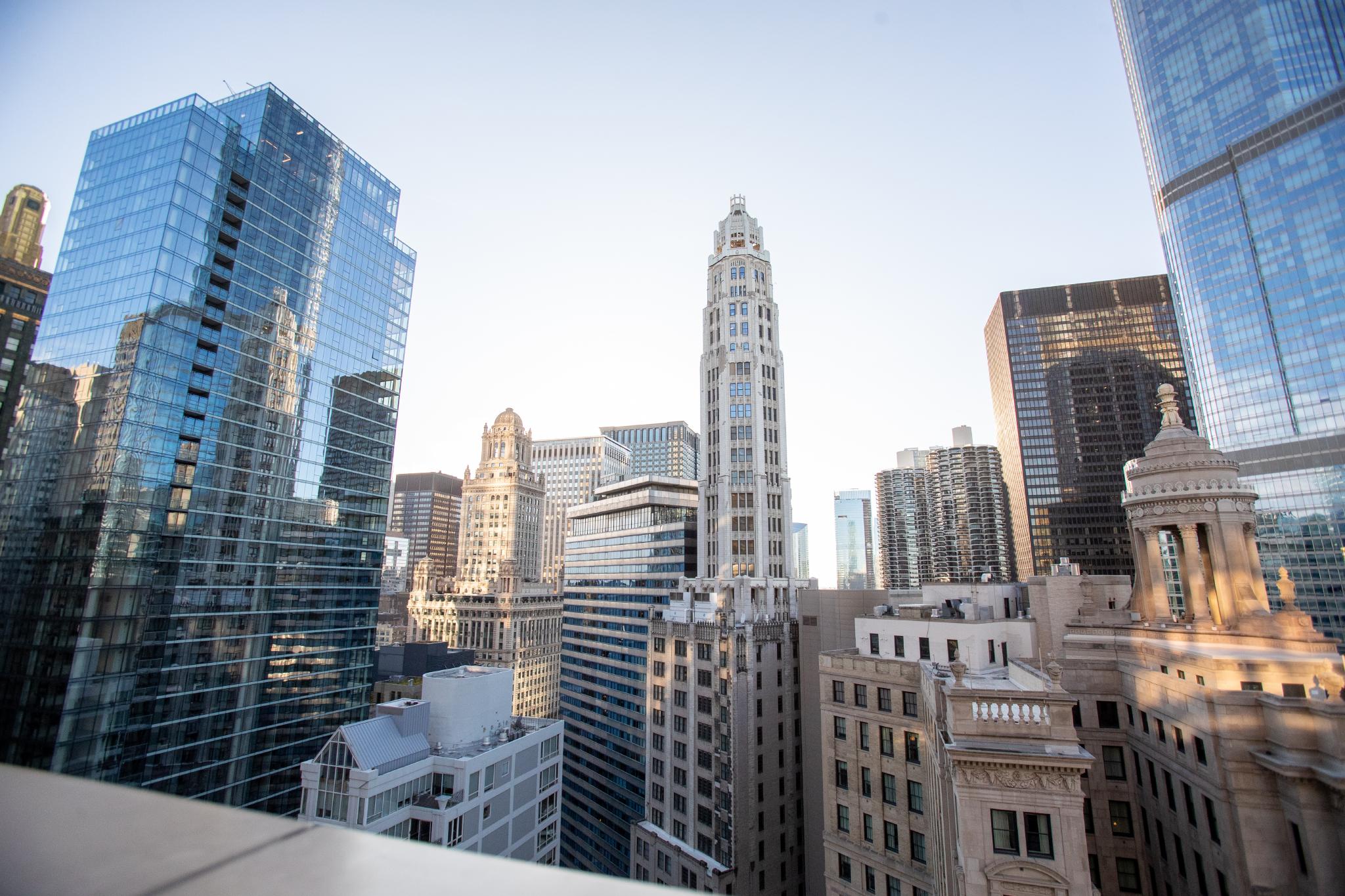
_resizedc8365771-cae3-4da7-8045-fc357eea571c.jpg?sfvrsn=a1d9349b_1)
_resized6a1f3e98-8a4f-416b-a4a5-c5693e0093fa.jpg?sfvrsn=80d9349b_1)
_resized.jpg?sfvrsn=ebdf349b_1)
